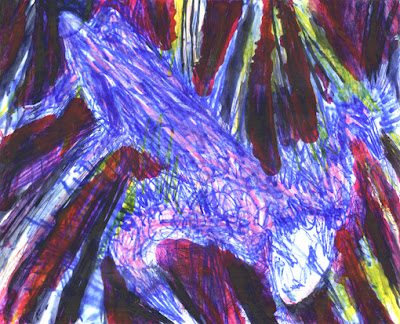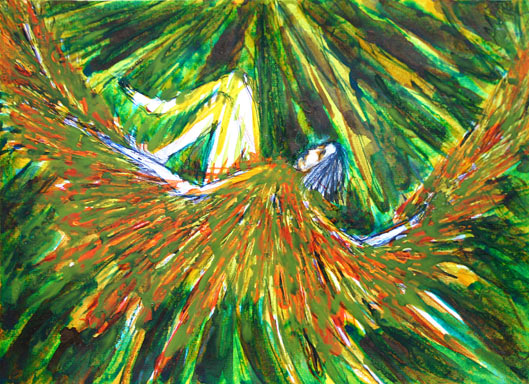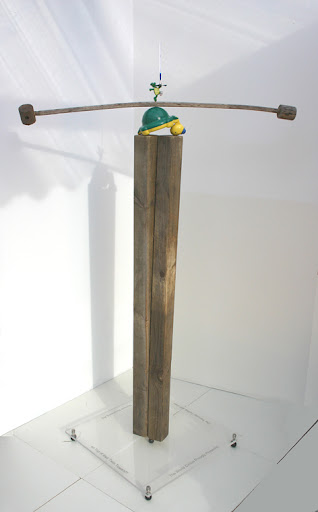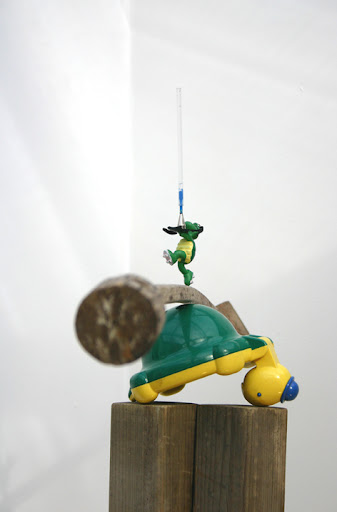ok. let me step outside of the visual arts for a moment, to introduce you to someone who is still -i believe- little known outside the netherlands:

statue of multatuli (by hans bayens) amsterdam
multatuli is seen by many as the greatest dutch writer ever, anyway i think he's a great writer [what great means i leave be, in the light of the ongoing chautauqua on quality; it looks like a gpr-qualification (gpr=generalized pagerank) but can also be simply personal, which is how i use it.]
although he is most famous for his revolutionary work
max havelaar, or the coffee auctions of the dutch trading society, to which i will come back, his 7book work
ideas is perhaps the most direct inspiration for this weblog to have seen some light of day (electrons of night is more accurate but would you get the analogy?).
to understand this, you should know that multatuli's numbered
ideas are in their essence and form a weblog avant-la-lettre. but they date from the second half of the 19th century. they also contain a play and an entire, wonderful novel called
woutertje pieterse.
yes, yes, you're getting impatient, i know. what the buzz does this multiperson have to do with icarus...
well, take the time to follow the links above, then you can read in what way multatuli was so far ahead of his time, and flying so much higher as to merit an association with icarus. in his
ideas one can read also what his contemporaries write about him and his answers to this. and like
boltzmann he put an imnsho lamentable amount of time and energy in trying to uplift his contemporaries to his own level. which, by sheer mass, results most often in being dragged down...
although? let me cite wikipedia on the longterm effects of
max havelaar (written in 1860!):
The combination of these two strategies caused widespread abuse of colonial power, especially on the islands of Java and Sumatra, resulting in abject poverty and widespread starvation among the farmers.
Multatuli wrote Max Havelaar in protest against these colonial policies. Despite its terse writing style, it raised the awareness of Europeans living in Europe at the time that the wealth that they enjoyed was the result of suffering in other parts of the world. This awareness eventually formed the motivation for the new Ethical Policy by which the Dutch colonial government attempted to "repay" their debt to their colonial subjects by providing education to some classes of natives, generally members of the elite loyal to the colonial government.
Indonesian novelist Pramoedya Ananta Toer argued that by triggering these educational reforms, Max Havelaar was in turn responsible for the nationalist movement that ended Dutch colonialism in Indonesia after 1945, and which was instrumental in the call for decolonisation in Africa and elsewhere in the world. Thus, according to Pramoedya, Max Havelaar is "the book that killed colonialism".
to be continued.










